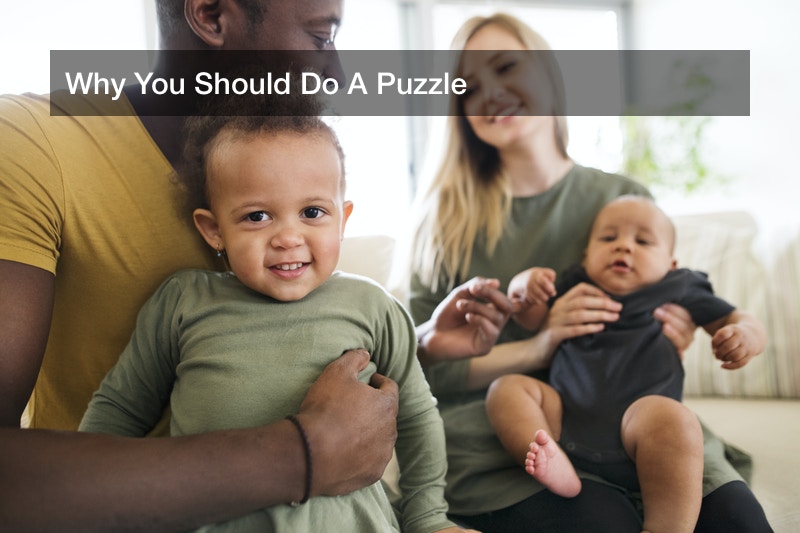
Everyone is familiar with jigsaw puzzles, and a big jigsaw puzzle may be a real challenge to complete, such as a 1000 pc puzzle. Easy puzzles may be better for kids, and 300 piece puzzles may be best for them. Older puzzle lovers may try a 1000 pc puzzle instead, or even a 2000 piece jigsaw puzzle if a 1000 pc puzzle is too easy for them. These puzzles come in a charming variety of images and patterns for the pieces, and the image can be something standard like a forest hiking path or a rural cottage. Or, the image may be something exotic or very challenging, such as a clear blue sky. If most of the pieces in a puzzle have similar colors, this can make the puzzle, like a 1000 pc puzzle, much more challenging since there aren’t details in the overall image to use as a reference. But puzzles are not entirely fun and games. Researchers have found that a 1000 pc puzzle, for example, has a substantial list of health benefit for the young and old alike. Not only the muscles, but the mind should also be exercised, and a 1000 pc puzzle can do just that.
Kids and Development
A 1000 pc puzzle won’t make a genius out of a child, but then again, puzzles have many elements that are important for a child’s development. Puzzles, playing sports, and more can greatly help a child’s brain grow, and any parent would want this for their son or daughter. A child’s brain makes most of its neural connections before age 10, and it has long since been established that motor movement gets the human brain moving. An active body in turn will make for an active brain, so gross motor skills must be constantly exercised, literally, to benefit the brain, too. It’s fair to say that learning, for kids, is indeed a hands-on affair, and the human body is meant to move. Movement from running to playing soccer to assembling a puzzle or similar toy can have solid neural benefits for the developing brain.
Gross motor skills are a major part of a child’s mental development, which is partly why elementary school and pre-school involve recess, and children are always encouraged to play outside. Modern trends tend to go in the other direction, however, with school-age children often having sedentary lifestyles involving computer screens. This is bad for a child’s weight and his/her mental development alike, so parents today are urged to get their kids more active, and this can include toys such as puzzles or building toys to engage the brain. Besides that, puzzles can be great fun, and a user can even get a release of dopamine, the pleasure hormone, while doing a puzzle and getting the satisfaction of completing an image. Kids may have fun collecting puzzles and choosing their favorite ones, and a favorite puzzle may be completed many times, based on the childs’s preference for the final image or the challenge level. As a child gets older, he or she may start looking for more challenging puzzles.
And adult’s brain is fully developed, but even adults may get some benefits from doing puzzles. This can serve as a sort of mental cardio to keep the brain sharp and in shape, and an adult may have a good time doing a puzzle on a rainy day or with their child. And puzzles may even be somewhat helpful for adults who are suffering from neurological issues. Those suffering from dementia such as Alzheimer’s may have temporary relief from their condition or slow the effects with mental and physical stimulation. While there is no proper cure for Alzheimer’s, it has often been shown that mental exercise such as jigsaw puzzles and other mental challenges can stimulate the mind. This can help slow down the advance of Alzheimer’s, along with other countermeasures such as gentle exercise and a solid social life and conversation. Some of the best remedies for an issue are entirely natural, and puzzles can help an Alzheimer’s patient have a good time and manage their condition a bit better. Best of all, puzzles are easy to afford and store for any customer.
More Topics:
puzzle for brain exercise, puzzles to improve memory, are word search puzzles good for the brain, average time to complete 1000 piece puzzle, average time to solve 1000 piece puzzle, best puzzle strategy, bill gates jigsaw puzzles, brain health and puzzles, cognitive puzzles, do puzzles increase iq, health benefits of jigsaw puzzles, how are puzzles good for your brain, how do brain teasers help your brain, how do you do a jigsaw, how long to finish a 1000 piece puzzle, is doing jigsaw puzzles good for the brain, jigsaw puzzle intelligence, jigsaw puzzle mindfulness, jigsaw puzzle table plans software, jigsaw puzzles for the elderly uk, large piece puzzles for the elderly.

